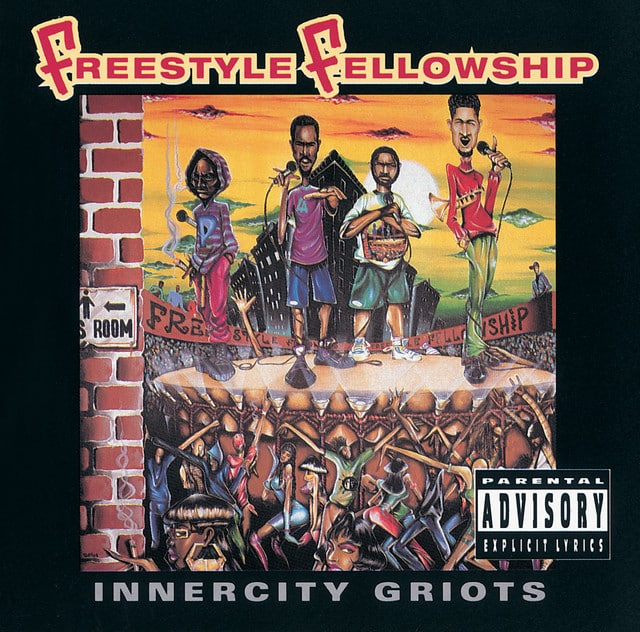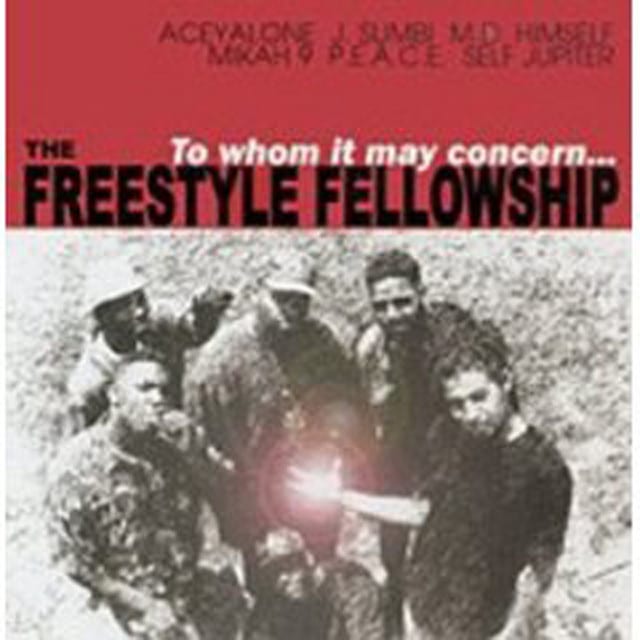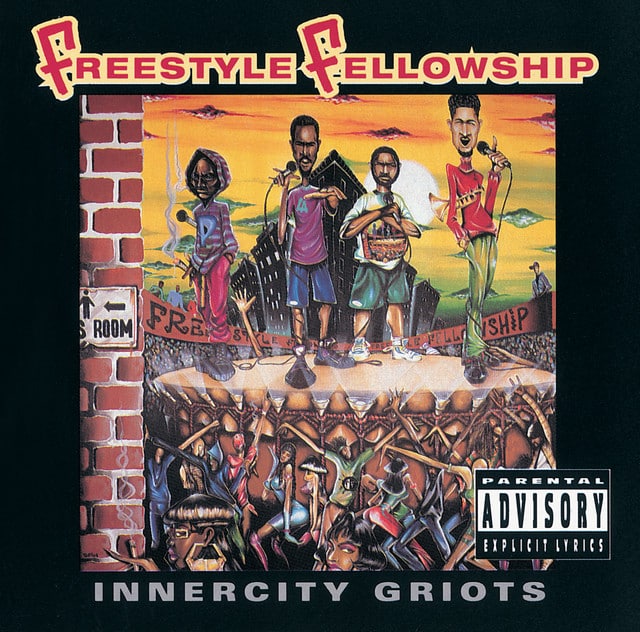Released: 1993
“Inner City Boundaries” by Freestyle Fellowship is a deeply introspective track that uses sharp poetic language to discuss themes of self-awareness, freedom, and cultural pride. This tune is a definitive declaration of the group’s resolve to maintain their integrity and authenticity in the face of adversity, while also espousing a profound yearning for individual and collective liberation.
The opening lines set the tone, focusing on a ‘knowledge of self’ as a crucial factor in achieving freedom. In hip-hop parlance, this notion of self-knowledge pertains to understanding one’s history, identity, and potential. The ‘devil’ that the verses point to could be interpreted as any forces, internal or external, that aim to suppress this self-knowledge and hinder personal or collective progress. ‘Blessin’ Allah that I found the key’ suggests a turning point, an enlightenment that has allowed the lyricist to reject these negative influences.
The lyric ‘We are by no means ashamed of our cultural background, Not a tad bit ‘fraid of change’ implies an unapologetic embrace of their blackness and an openness to evolution. It’s a declaration of hard-won self-assurance, a refusal to succumb to societal pressures that would force them to dilute or deny their black identity.

Further, the line ‘I gotta be righteous, I gotta be me, I gotta be conscious, I gotta be free’ is a call to arms, an emphasis on acting with integrity (‘righteous’), staying true to oneself (‘be me’), remaining aware of socio-political climates (‘conscious’), and striving towards liberation (‘be free’).
Then the lyrics enter into a form of call-out culture prevalent in hip-hop: ‘Enemy enemy you crossed the wrong boundary, poof! Wicked witness wizardry, Disappear from here and end up in a tree, Crossed the wrong boundary.’ These lines can be seen as a confrontation to oppressors or detractors who have violated their ‘boundaries’, warning of swift and poetic justice.
Interwoven with these broader social commentaries are personal reflections and pop cultural references. The line ‘Liked Gladys better when she sang with The Pips’ speaks to the nostalgia and preference for the golden era of soul music, comparing it to the current state of the musical landscape. This can be seen as a critique of commercialization and a loss of authenticity in music.
The concluding parts of the song reaffirm the core themes of self-knowledge, authenticity, black pride, and a call for liberation. Crucially, the lyric ‘A new generation of blackness, And we’re forced to set our boundaries’ underscores the ongoing struggle and the determination to define a space for self-determination and resistance within an oppressive society.
In essence, “Inner City Boundaries” presents a potent mix of personal introspection, societal critique and cultural pride. It is a battle cry for personal and collective identity, set against an oppressive backdrop, persisting, resisting, and ultimately affirming the power of a self-determined black identity.





